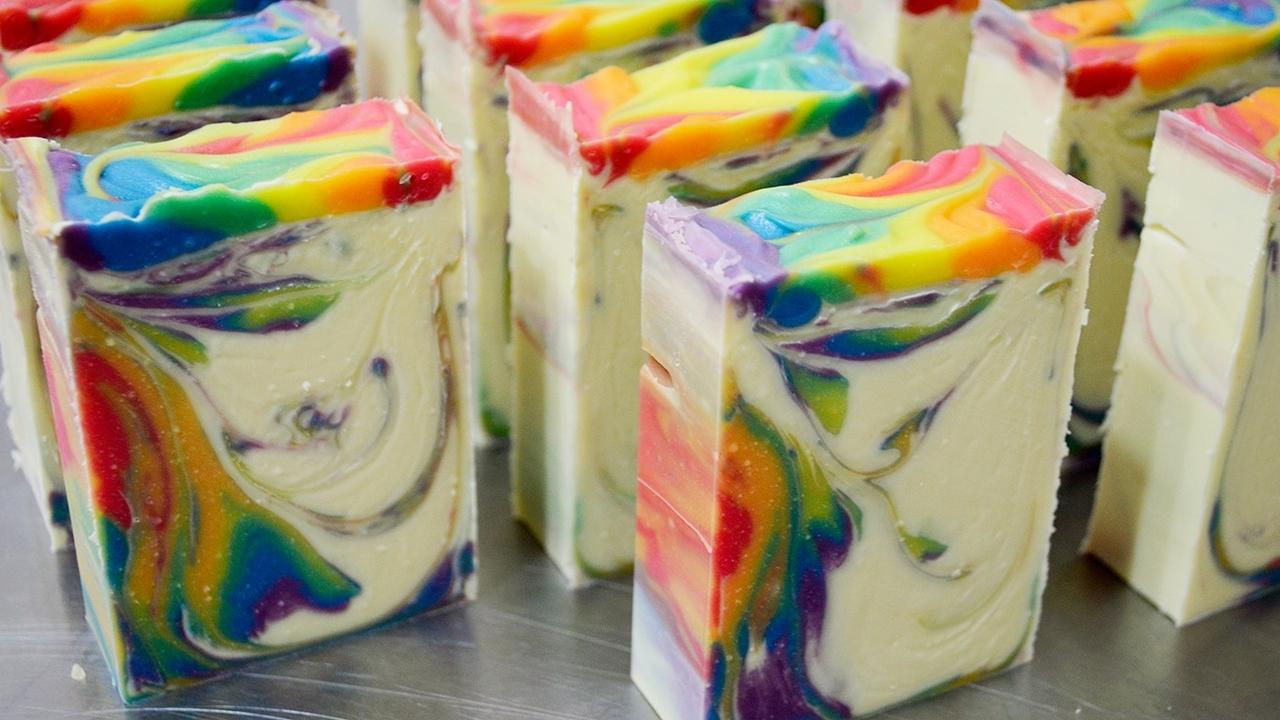Q+A with a CPA: Keeping Track of Your Inventory for Tax Purposes

This time of year, folks tend to ask a whole lotta questions about managing their inventory, what to count and what not to count, and the best practices to keeping track of inventory throughout the year.
Since I'm not a bookkeeper or CPA by trade, I try not to touch those questions with a ten foot pole. (Hey, gotta stick to your expertise!) Luckily, I was able to tag in my awesome CPA to answer them up instead!

I rounded up the most popular questions from members of our Facebook group, and popped them over to Gabe. This series, Q+A with a CPA, is the result of Gabe lending a little lot of his expertise to help y’all rock your books, numbers, and minds.
Q+A with a CPA: Keeping Track of Inventory
To briefly introduce Gabe, he’s a personal and small business CPA located in Springfield, Missouri. He’s married & has two kidlets, plus he’s an entrepreneur so he *gets* us. He’s one of those weird folks who enjoy working with numbers (because he’s crazy) and studied accounting at Missouri State. He has a slew of happy clients, both locally and nationwide (myself included!).
Today, we’re talking about what you need to know about keeping track of inventory for your soap company:
Q: How do I account for my raw material inventory at the end of the year?
Gabe says: Your raw materials are an asset and should not be deducted on your tax return if they are still on hand on December 31st.
As an example, if you purchased $100,000 of raw materials during 2017 and had $10,000 of raw materials on hand on December 31st, 2017, you should only deduct $90,000 of the cost of goods sold on your tax return.
This is an area where many business owners get confused and make the end-of-year purchases for raw materials thinking they will get a tax deduction but don't. Then you've used your cash and still don't reduce your tax bill!
Q: What's the best way to keep track of inventory from a bookkeeping standpoint? How often should I verify my inventory?
Gabe says: If keeping your inventory inside your accounting records (like Quickbooks), I would recommend updating and verifying at least quarterly. Obviously, you'd need to verify the inventory at least yearly for your tax return.
The manual process of coding purchases to inventory and then to cost of goods sold when used can be cumbersome. My suggestion would be to code everything to COGS (cost of goods sold) if your operations are simple at this point. Then you can update and verify at year-end for tax purposes.
If more complex and detailed records are needed for management accounting purposes, you could go through the process mentioned above. All purchases would go to inventory, then you would need to credit inventory and debit cost of goods sold when you use the inventory in the production process. On a monthly or quarterly basis, you would want to verify that your inventory is correct and adjust as necessary.
Again, I think the answer depends on if that matters to your business and financial record-keeping needs!
Side note from Kenna: If you are looking for software that specifically helps you manage your inventory of both raw materials and finished goods outside of your accounting software, you may want to read up on our Craftybase review or consider Soapmaker 3 software in addition to your bookkeeping!
Q: How do you account for failed batches of soap where you can’t use the final product?
Gabe says: Failed batches of soap would be expensed with all the rest of your raw materials. You can't deduct your own labor but can deduct any out-of-pocket expenses (mainly raw materials) that you used for the failed batch.
Q: When buying products from your own business, how do you determine an acceptable discount? (I'm talking about products that you could sell at retail value and want to purchase yourself for non-business-related use.)
Gabe says: For tax purposes, you shouldn't take a deduction for the raw materials unless you actually count the sale as income for your business. The simplest way would be just to exclude the raw materials used for personal use.
Q: If I donate soap to a women’s shelter or other charity for use, how should I record that in my bookkeeping? Is it a loss? Advertising cost? Do I charge my business for the products?
Gabe says: You should only deduct the amount that you originally paid for the soap supplies. Unfortunately, you can't deduct your time or talents used to turn the raw materials into a finished good that you donate to charity.
If you have a tax accountant, you should check with them on what account they want you to put the expense in. I personally would ask you to further detail the charity or shelter and how the donation is being used before deciding if it was an advertising expense or a charitable contribution.
The takeaway? Keeping track of inventory is too important to skip out on, waiting for the end of the year isn't going to be any fun!
When I teach soapmakers how to jump their craft from hobby to business, we talk about how important it is to change your production processes to fit the business mindset. From producing soap more efficiently to keeping a stellar inventory, it's important for soapmakers who sell their products to keep the biz side in order!
Stay tuned for the fourth round of Q+A with a CPA, where Gabe answers a handful of soapmakers’ questions about keeping track of their books and numbers! Here are the previous posts:
Want to snag weekly advice on building a successful soap biz directly in your inbox?
Of course you do! Sign up for our newsletter below for more tips and tricks to make bank in your biz.

